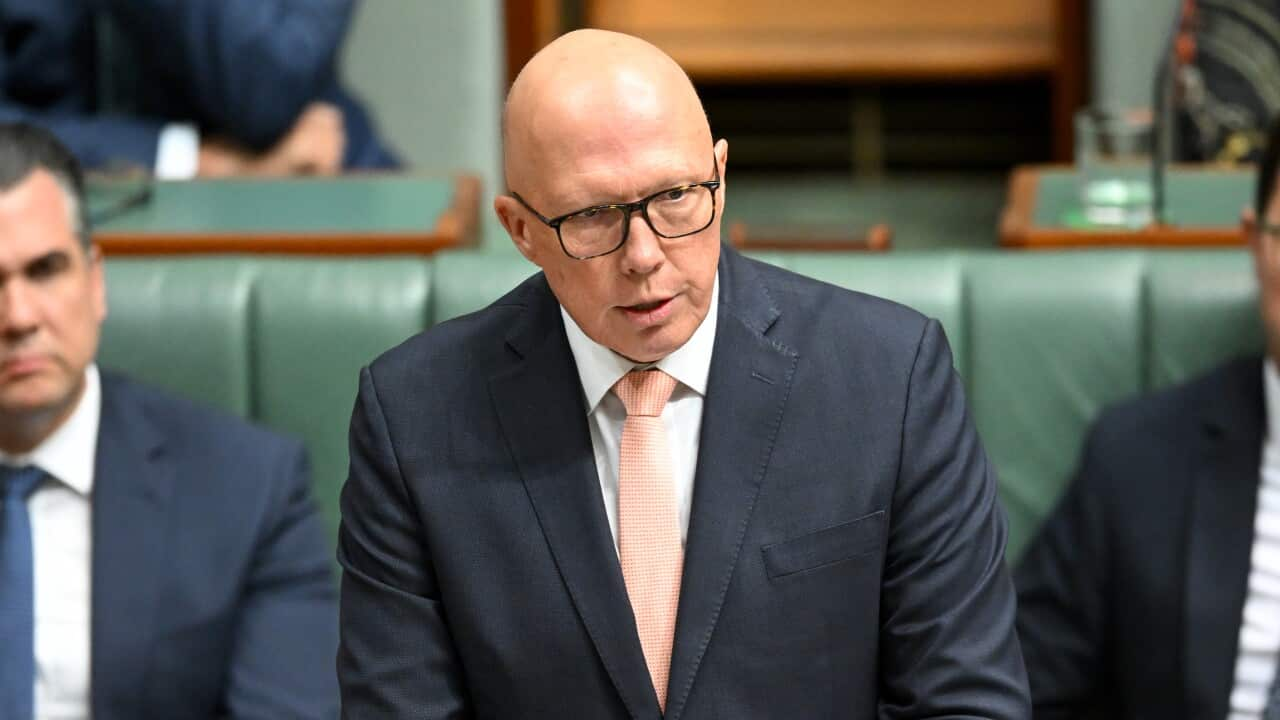Opposition leader Peter Dutton has indicated “golden ticket” visas for wealthy foreign investors could be reintroduced if he is elected.
The Significant Investor provisional visa (SIV) allowed successful applicants to stay in Australia for up to five years and even offered a pathway to residency for those investing millions locally.
The scheme was axed over concerns it was “prone to fraud”.
However, footage of Dutton speaking to migration agent Min Li suggests it could make a comeback under a Coalition government.
“We stopped for three years, everyone ask me when is coming back?” Min asks at the Liberal Party fundraiser.
“I think we’ll bring it back whether we go it before the election or we actually look at a different design for it, you know,” he responds.
While not an official election commitment, Dutton doubled down on the private pledge as he praised the benefits of foreign investment last week.
“I don’t think there’s anything remarkable in saying that we want to attract high net wealth individuals to our country who can bring potentially hundreds and hundreds of millions of dollars,” he told Sydney radio 2GB on Thursday.
Dutton’s point was echoed across the Tasman by conservative New Zealand Prime Minister Christopher Luxon, who on Sunday relaxed the parameters to introduce a similar golden ticket in New Zealand.
Here’s how the millionaire visa was introduced and ultimately scrapped in Australia.
What is the SIV or ‘golden ticket’ visa?
The SIV stream (subclass 188) was introduced by the Julia Gillard government in 2012.
It allowed applicants who invested at least $5 million into approved channels, such as capital and growth private equity funds or Australian Stock Exchange-listed companies, to stay in Australia for up to five years.
There was no English-language requirement for the visa and no upper age limits.
Foreign investors had to show genuine intention to hold the investment for the life of the visa and could apply for permanent residency, provided they met certain requirements.
A list of countries that offer ‘golden visas’. Source: SBS News
Why was the visa scrapped?
The main argument for the SIV is attracting foreign investment in Australia. However, it drew criticism that these visas were often granted to older people who did not otherwise contribute to the nation’s productivity.
As of June 2020, 2,349 SIVs had been granted, injecting $11.7 billion into approved investments, according to the Department of Home Affairs.
However, a 2023 Productivity Commission review of the migration system found the visas did not meet their primary objective and instead “have been associated with poorer fiscal outcomes compared with other skilled visas”.
Then-home affairs minister Clare O’Neil was critical of the scheme, saying it was like “buying your way into the country”. Source: AAP / Dean Lewins
It was estimated that the 5,000 SIVs forecast for that financial year would cost the country up to $3.4 billion compared to if those visas were allocated to skilled independent or employer-sponsored streams.
It concluded that there was “no case for retaining this category of permanent visa”.
A year later, then-home affairs minister Clare O’Neil scrapped the subclass, claiming it was being exploited by corrupt officials and a way to “buy your way into the country”.
Abul Rizvi, a former deputy secretary at the Department of Immigration from the early 1990s to 2007, has been critical of the scheme for over a decade.
There is “very little benefit to Australia from these visas”.
“The objective of the visa was to increase investment in Australia. But what actually turned out was that people were buying retirement in Australia for a very, very cheap price,” Rizvi told SBS News.
There were also concerns that golden visa schemes, present in over 20 countries, were exploited by corrupt foreign officials or organised crime groups to launder money.
How could a golden visa work?
did not explicitly urge the visas to be axed, instead suggesting the SIV should be “much more sharply targeted to select migrants able to drive innovative investments”.
Rizvi said instead of millionaire retirees, we should encourage young skilled migrants — doctors, engineers, teachers — or those who want to run a business locally if we want to bolster productivity.
“The best approach is to encourage people who are going to start up new and innovative businesses in Australia, invest in those businesses and actually live in Australia and run those businesses.
“That is the way to achieve the maximum productivity benefit from these sorts of visas, not passive investment.”


